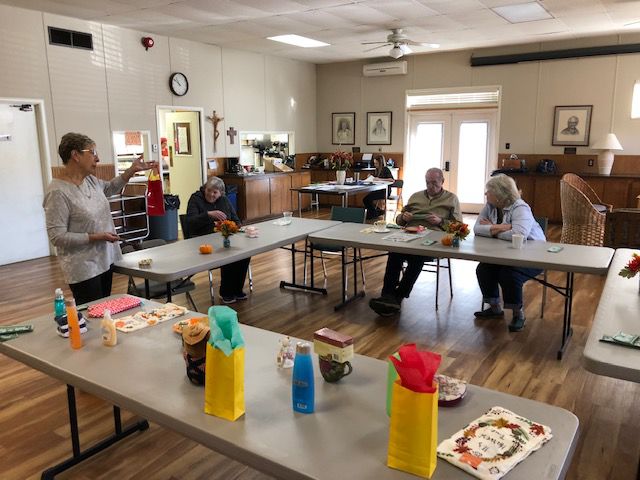After her husband’s extensive back surgery, Jeanette Zwinger noticed he was starting to act differently. Her husband Richard, an avid flying enthusiast and former Air Force member who lived life with a sense of adventure, began to show cognitive decline after suffering a heart attack a few days after his back surgery. Richard’s “on-the-go, onto-the-next-thing” personality had declined almost into a state of delirium, and his wife was unsure of how she could continue caring for him.
Stories like the Zwinger’s are all too familiar for wives, husbands and other loved ones who end up caring for someone with serious cognitive decline, and that is why the Sonoma County Council on Aging is offering what it calls the Adult Day Respite Program.
“We run these respite programs for adults with Alzheimer’s or dementia, and a large part of this is to give caregivers a break to rest, take a breather and gather their thoughts,” said Jill Zimmerman, the Healdsburg day program manager.
The club, which is offered in Healdsburg, Sebastopol, Santa Rosa and Sonoma, offers a full day of activities to give attendees a sense of independence, dignity and engagement.
Seniors with cognitive decline get to interact with one another, play games that stimulate the brain and participate in creative art and music, a major plus for those with decreased cognitive function.
As reported by Alzheimer’s.net, a recent study found that music and film can boost dementia or Alzheimer’s patients’ mood and cognitive abilities.
“Researchers determined the effect music has on dementia patients, by leading half of the participants through selected songs… all participants took cognitive ability and life satisfaction tests, which showed how they scored significantly better when being lead through songs.”
In addition to the music research, a recent study by researchers at the University of Exeter, King’s College London found that about 8 minutes a day of conversation and social interaction could help dementia patients by lessening agitation and pain.
With this in mind, the club is small, allowing for individualized care and socialization.
Attendees also get a hot, nutritious lunch and are lead in a gentle group exercise and walk.
“We keep everybody engaged. We do a lot of games like bingo and checkers. We also have local musicians come in, and we do holiday parties,” Zimmerman said. “We have fun, and we giggle.”
According to Zimmerman, attendance can fluctuate between 10 to three people, and attendees do not have to stay the whole time, making it flexible for everyone.
Zwinger started taking her husband to the Healdsburg club in 2016/17 after she noticed Richard’s decline.
“(Initially) we placed him in one program, but they never took him out. He needed socialization, so I took him home, but even though I didn’t want to admit it to myself, I realized that it was too much,” Zwinger said.
Zwinger then found the respite program with the Council on Aging and said it was able to make Richard happy and engaged once again.
“They counted on him, and it gave him a sense of joy and independence,” Zwinger said. “He wouldn’t smile at home, but he would smile for them.”
And in part, that is the crux of the program, not just providing seniors with a meal and an activity, but making them feel needed and part of a community.
“I pour a lot of care and attention into these seniors, and all of that comes back to me,” Zimmerman said. “It is an honor for me to be with these people who have lived full lives and be able to give back to them the respect they deserve.”
Richard attended as many of the Council on Aging’s “Senior Social Clubs” as he could before he “aged out” of the Adult Day Respite Program and declined too much to attend. And the groups were a lifesaver for his wife.
“It was great. I was able to go out to dinner and breath a sigh of relief,” Zwinger said and paused, trying to find the right words to sum it all up. “I can’t even verbalize how fabulous this place was. He loved it.”
The Adult Day Respite Program in Healdsburg happens on Monday, Tuesday and Wednesday from 9:30 a.m. to 2 p.m. at St. Paul’s Church, 209 Matheson St.
It is open to adults 60 and over, but participants must be registered and approved for the program before attending. For more information or to schedule a visit, contact Jamie Escoubas, the program manager at 707-525-0143, ext. 103.









